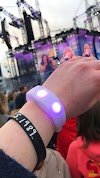
David Fincher’s The Social Network starts out with a lot of words. In rapid-fire run-on sentences that fill most of the lengthy opening scene, Harvard student Mark Zuckerberg (Jesse Eisenberg) talks his way into a break-up with girlfriend Erica Albright (Mara Rooney) … and talks and talks, revealing himself as tactless and insensitive and spurring him on to the blog tirade that leads him to the invention of a who’s-the-hotter-coed website that reels in thousands of visitors and burns out Harvard’s network - that leads him to meeting the preppie Winklevoss twins (Armie Hammer/ Josh Pence) with their idea for an exclusive Harvard student site - that leads him to the invention of Facebook - that leads to alienating himself from financial backer and best friend Eduardo Saverin (Andrew Garfield) - that leads to two lawsuits seeking a share of the bountiful profits gleaned by this facelift of the Internet social scene.
In this cause and effect chain of events, Fincher moves the action along expeditiously but I never felt a gripping sense of witnessing a clever invention that gave birth to an Internet revolution. Zuckerberg gets an idea. He runs across the campus. He modifies the site to include relationship status. Meanwhile, the ongoing rising toll of subscribers is supposed to generate suspense, but that's as gripping as watching the growing prize total of a state lottery for which you haven’t bought a ticket. “Refresh,” says promoter Sean Parker (Justin Timberlake) when the running total of subscribers nears a million in the oh-so-cool offices of Facebook. Don’t hackers know when to hit “refresh”?
The Social Network is about motives. Saverin clearly wants the money he deserves after being betrayed by his best friend. The Winklevoss twins want to assuage the bitterness they feel from missing out on an invention they think was their idea. They don’t like coming in second, which is clearly shown in the flashy, noisily staged scene in which the talented rowers come in a close second at the Henley-on-Thames Regatta. As for Zuckerberg, as he slouches and doodles and jokes sardonically throughout two different lawsuits, it’s clear that his motive has never been money. His motive has been doing what he knows how to do best, and doing it better than anyone else.
As Zuckerberg, Eisenberg works hard to inhabit a challenging role though sometimes his lines come off as merely recited and not coming from a fully realized character. At other times, Zuckerberg as a character shines through the performance. We see him as an isolated, inward outsider, so out of it in his relations with other human beings that if he tosses a girl a bottle of beer and she drops it, as happens in one scene, he's too socially obtuse to draw the conclusion that he shouldn't toss the second bottle. For the most part, I was too aware of a performance that was not consistently convincing. If Zuckerberg feels pain way down there in the cell that he inhabits, Eisenberg rarely made me feel it. And if he's an excessively grasping entrepreneur, he comes off as a limp-wristed grasper.
Throughout, The Social Network is certainly interesting. It is intriguing to observe the irony of an insular loner who creates a website so that millions of people can stay constantly in touch with their friends. I started my Facebook page to share photos and videos with family and peers. It quickly proved useless for that purpose because most people my age were too busy or disinterested to check it. But when I accepted friend requests from former students who had just graduated from high school, I got numerous messages from them when they went off to college and lots of comments on the photos and videos I had posted. When I found a number of messages posted on my birthday, I got to like Facebook. Facebook was invented for college students. They’re the ones who spend time on it – a lot more time on it than I would think they’d have at college. Why they use it, what they get from it, are fascinating questions I wish the film had explored - or had been explored by a documentary which might have delivered a more compelling depiction of this topic. The scene in which Zuckerberg goes on Facebook and hesitantly friends ex-girlfriend, Erica Albright reflects the irony of the anti-social Zuckerberg and Facebook, the social network. It's a dramatic moment, but there isn't enough of that.
The film is cleverly written by Aaron Sorkin, but for all that talking, there's not much drama. It is skillfully directed by David Fincher. I like his use of color: the green appletinis Sean Parker orders when he first meets Zuckerberg and Saverin, the blue lights of the noisy nightclub. (The green appletinis made me think of the blue drinks in a scene in David Fincher's Zodiac - another key meeting staged in a bar over brightly colored drinks.)


At times, the film gets your attention simply because it's about a web phenomenon that is such a part of our culture today. Ten years from now there will be another web phenomenon to depict on film, and The Social Network will be remembered or forgotten for the quality of its filmmaking and the depiction of its central character rather than for its topic - if its filmmaking and central character are memorable enough. For me, it's nearly forgotten already. Eisenberg's protrayal of Zuckerberg and Fincher's depiction of a revolutionary invention simply aren't compelling enough for me to hit "Like."




0 Yorumlar